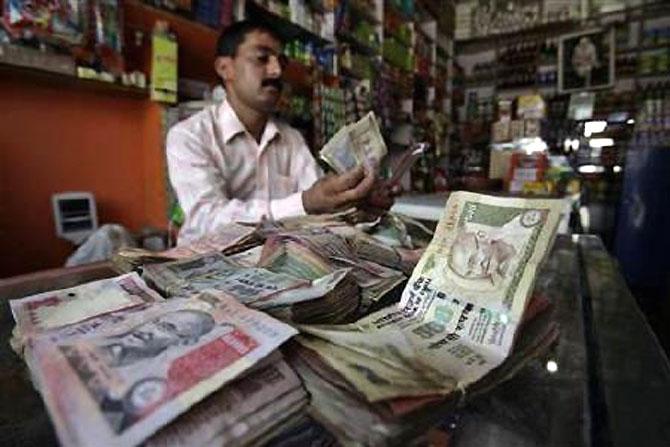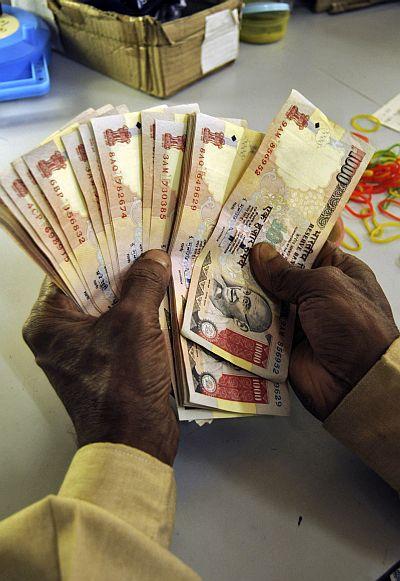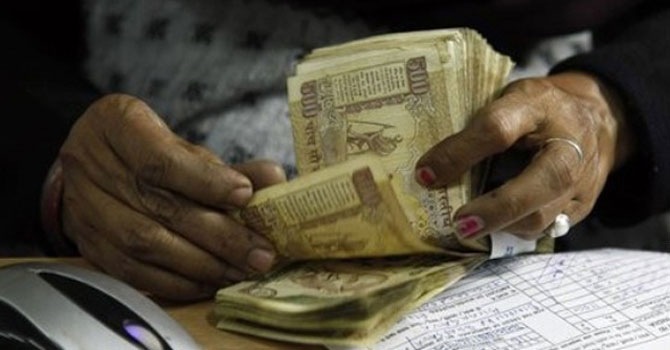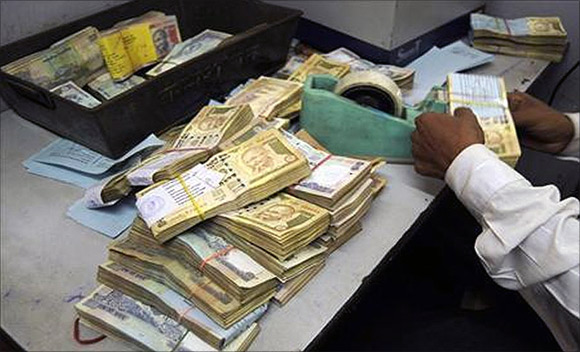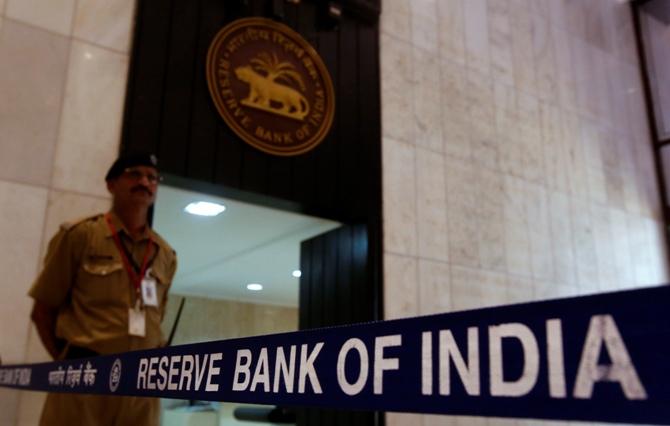 | « Back to article | Print this article |
RBI mandate on bank notes make customers anxious
Baldev Shah, 38, a wholesale textile store owner from South Mumbai had a visit to his bank branch as Thursday’s priority.
A businessman who deals with cash of Rs 40,000-50,000 on an average for every transaction, he was worried if all the bank notes he had were valid or not and if he could exchange old notes immediately.
On Wednesday, the Reserve Bank of India had said it would withdraw all pre-2005 bank-notes from March 31.
As a result, quite a few bank branches in the city saw customers visiting to enquire how the process would work.
Some also deposited cash of the pre-2005 currency into their accounts, putting the onus of giving new notes on the banks concerned.
Further, branch officials said that since transactions of Rs 50,000 and above would require an individual to provide the tax-PAN number, customers were depositing Rs 49,000 or below in tranches to avoid scrutiny.
Click NEXT to read further. . .
RBI mandate on bank notes make customers anxious
RBI Governor Raghuram Rajan clarified on Thursday that the order was not an attempt at de-monetisation.
He said there had been an old demand that these notes had become less secure; those issued after 2005 had greater security features and were difficult to counterfeit and the finance ministry sought withdrawal of the pre-2005 ones.
While cash deposits are not allowed to be kept in bank lockers, the branch manager of a large public sector bank said some customers has also discreetly taken out cash from these to check the currencies.
RBI had said the public could easily identify the notes to be withdrawn, as those issued before 2005 did not have the year of printing on the reverse side.
Click NEXT to read further. . .
RBI mandate on bank notes make customers anxious
While some notes printed before 2005 had the year imprinted, several others had none, the branch head of a PSB said.
Bank officials said it would be difficult to immediately implement the norms.
The currency chest head of a PSB said while the sorting machines provided by vendors had some basic recognition capacity, further configuration was required.
"Notes printed post 2005 have security features identifiable by our sorting machines, which sort notes as 'issuable and 'non-issuable'.
“However, now the vendor who provides us the machine will have to tweak their software so that all pre-2005 notes can be sorted.
“This is expected to take some time," the official added.
Click NEXT to read further. . .
RBI mandate on bank notes make customers anxious
Enquiries have also begun coming from small business owners, who have Rs 40,000-50,000 at their disposal on a regular basis to make small payments.
A senior executive of a private sector bank said enquiries had come from entrepreneurs as to whether separate arrangements could be made to handle pre-2005 cash presented by business people before April 1.
RBI has also clarified that the notes issued before 2005 would continue to be legal tender. This would mean banks were required to exchange the notes for customers and non-customers.
From July 1, however, to exchange more than 10 pieces of Rs 500 and Rs 1,000 notes, non-customers will have to furnish a proof of identity and residence to the bank branch concerned.
Click NEXT to read further. . .
RBI mandate on bank notes make customers anxious
With no deadline given for exchanging the old notes, bank officials said there was a customer fear on non-availability of notes.
"Since there is no clarity on the duration for which old notes will be accepted, customers will be in for a shock if the banking regulator announces a sudden deadline.
“Neither will they be prepared, nor will we have enough cash at our disposal,” said a PSB executive.
The process of transition will also require some time.
This is because all the cash in the system of the pre-2005 period will have to be withdrawn, sent to RBI to be destroyed and new notes will have to be introduced in the system to replace the vacuum.
A senior bank official explained that as currency printing was a tedious and expensive process, there was a fear of shortage of cash in the system.
To implement the RBI circular, banks are waiting for a detailed guideline from the Indian Banks Association, their umbrella body, on how to process customer requests and transactions from April 1.
